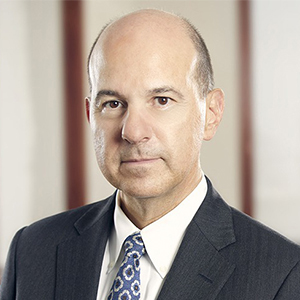GUEST COLUMN, David Kappos, Council for Innovation Promotion
Just before Christmas, Congress added – and then abruptly dropped – a section of a proposed spending bill aimed at limiting the number of patents pharmaceutical manufacturers could assert in patent litigation.
If lawmakers revisit this bill, Americans suffering from diseases will bear the weight of the consequences.
The lawmakers behind the bill have good intentions. They're trying to prevent exploitation of the patent system in ways that prevent cost-effective drugs from reaching the market.
Anti-patent activists tell lawmakers that these practices are widespread. Those activists claim drug companies illegitimately obtain scores of overlapping patents -- creating so-called "thickets" to block competition -- or make insignificant tweaks to existing products to extend the life of the original patent, thereby extending market exclusivity and preventing generic competition, also known as "evergreening.
But those allegations are flatly contradicted by a 2024 U.S. Patent and Trademark Office study.
The study, conducted in response to a request for an independent analysis of the issue from Senator Thom Tillis (R-NC), found no evidence that patent thicketing or evergreening actually occurs.
By introducing new measures to solve a problem that doesn't exist, lawmakers could inadvertently make it harder for life sciences companies to invest in legitimate research. Scientists, and ultimately patients, would be worse off as a result.
The most influential source of these theories is the Initiative for Medicines, Access, and Knowledge, or I-MAK. The group has long produced reports that purport to show the scale of the problem, but lawmakers shouldn't take the group's claims at face value.
As law scholar Adam Mossoff notes in a recent Hudson Institute report summarizing the USPTO study, I-MAK's publications are factually unreliable.
Consider the patent thicketing allegations. I-MAK asserted that 68 patents were associated with the popular nerve-pain relief drug Lyrica. But the U.S. Food and Drug Administration's Orange Book -- which lists all patents covering approved drugs in the United States -- lists only three patents associated with the drug.
In its 2019 reports, I-MAK suggests that 31 and 32 patents were associated with the drugs Eliquis and Xarelto, respectively. The USPTO found that the real numbers were just three and five, respectively.
The study also provides data to dispel I-MAK's evergreening allegations, including the claim that drugmakers can nearly double the length of patent protection for their drugs by filing multiple patents. U.S. law provides a 20-year exclusivity period for each drug patent's active ingredient before generics may enter. But that clock starts ticking long before the FDA approves a new drug.
The USPTO study found that generics enter the market from 3 to 16 years following FDA approval -- far shorter than the term of even the first patent covering a drug.
If evergreening were actually occurring on any significant scale, that figure would be far higher. And crucially, any subsequent improvement patents don't prevent generic companies from creating and selling copycat versions of drugs once the original patent terms have expired.
Lawmakers looking to crack down on patent abuse have noble intentions. But before they take action that could inadvertently undermine medical innovation, they ought to first review the USPTO's key findings -- because the agency's report thoroughly debunks the claims of patent abuse in the bio-pharma sector.
ABOUT THE AUTHOR — David Kappos served as the undersecretary of Commerce for intellectual property and director of the United States Patent and Trademark Office from 2009 to 2013. He currently serves as board co-chair of the Council for Innovation Promotion. This piece originally appeared in Law360.








